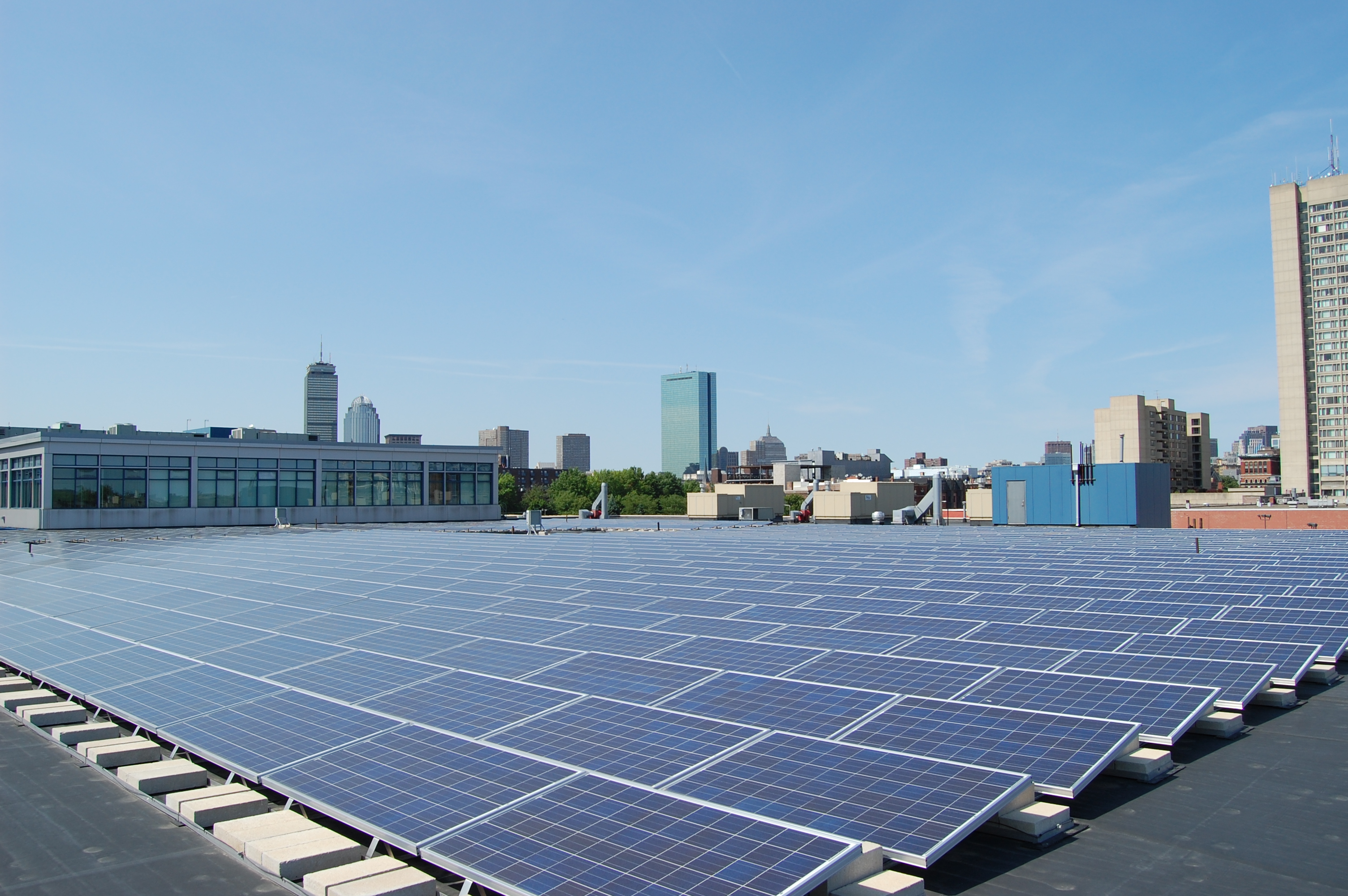
Faith Nicholas, Energy Efficiency Fellow with the City of Boston’s Building Energy Reporting and Disclosure Ordinance, explains how BERDO helps Boston achieve its emissions reductions goals.
Buildings are responsible for about half of the greenhouse gas emissions in Boston. The City’sBuilding Energy Reporting and Disclosure Ordinance (BERDO), an ordinance passed by City Council and signed into law n 2013, requires owners of medium- and large- sized buildings to report their energy and water usage. BERDO also requires the City to disclose that reported information to the public. The City of Boston uses BERDO information to assess citywide energy efficiency, and ensure that it’s reaching people who need support in making their buildings more cost-effective. It also helps owners, tenants, and other stakeholders be more aware of their energy usage and greenhouse gas emissions – which supports Boston’s climate change emissions reductions goals.
If you’ve reported your building’s energy and water usage to the City this year, there’s a good chance you’ve done so with the support of Faith Nicholas. She walks people through the reporting process, answers people’s questions about how to find their energy consumption data, and then helps them successfully report it. Faith gave us an update on this year’s reporting progress, as well as some insights on the energy reporting experience.
Pictured: Energy Efficiency Fellow Faith Nicholas.
How many buildings in Boston are required to report their energy and water usage? And how much square footage are we talking about?
So far this year, about 177.5 million square feet have been reported under BERDO, which is equal to 85% of the total square footage subject to reporting.
What do building owners get from reporting their buildings’ energy and water usage? How can reporting help owners make their buildings more efficient and save money?
A number of individuals have told me that they have been looking for a mechanism to track their building’s energy and water consumption, and they were happy to be pointed towards Portfolio Manager, which is the tool the City uses to collect energy information. People also look forward to seeing their building’s energy trends over time. In 2018, buildings subject to BERDO will need to start completing an energy assessment or energy action every five years, which will help them achieve greater energy efficiency savings.
How does BERDO help the City achieve its greenhouse gas reductions goals?
50% of Boston’s greenhouse gas emissions are associated with the energy consumed in large buildings. BERDO is one of the strategies the City has in play to reduce those emissions. BERDO’s goal is to increase education and awareness about building energy consumption, and to encourage energy efficiency in the real estate market.
If you’re a tenant or potential buyer in Boston’s real estate market, it can be difficult for you to assess the energy efficiency attributes of a building you might be interested in buying. Reporting, and public disclosure of that reporting, creates transparency on energy efficiency, and enables efficiency to become a deciding factor in real estate transactions. People want to consume less energy, pay lower utility bills, and live in more comfortable conditions – and BERDO can help make Boston’s buildings more desireable.
What questions do people have about the reporting process? What challenges do you help them overcome?
There is a really wide range of questions! Most people ask about how to use Portfolio Manager. Many people also ask about how to get information from the tenants – and are excited to learn that the utilities offer whole building data services, which means they’ll aggregate the consumption data for your whole building so that you don’t need to request information from each individual tenant.
If people have questions about how to report their energy and water usage – or if they need to know whether they’re required to report to begin with – where should they start?
They should visit the BERDO website! The website lists all of the buildings we have identified as needing to report in 2016 (although it should be noted the list is subject to additions and removals). The best identifier is whether your building falls under one of the categories of buildings required to report: All non-residential buildings over 35,000 gross square feet; All residential buildings over 50,000 gross square feet or with 50 or more residential units; Any tax parcel with multiple buildings that sum to at least 100,000 gross square feet or 100 residential units must report on all of its buildings.
Also, you can always call the Environment Department at 617.635.3850! There are a lot of questions we can answer in a quick phone call.
What’s something that would surprise most Bostonians about BERDO?
The Environment Department offers office hours for property managers to set up a time to come down to City Hall, and we can get a report submitted together in about an hour!
Visit the City of Boston’s new BERDO page for more information on reporting energy and water usage – and to view data from previous years.
Greenovate will continue to provide updates about BERDO reporting compliance, as well as resources for people who want to improve energy efficiency in their buildings.


Recent Comments